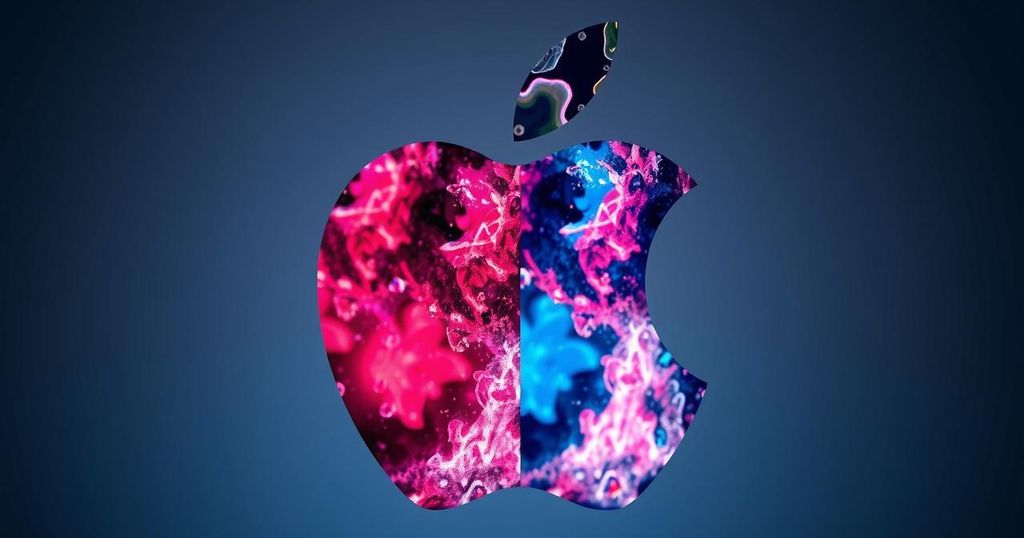The DRC has filed a criminal complaint against Apple for allegedly using illegally sourced ‘blood minerals’ from conflict zones. Serious charges include war crimes and deception. Legal representatives argue for corporate accountability in the supply chain, emphasizing the plight of civilians affected by the mining practices in war-torn regions. Apple denies the allegations, claiming diligent sourcing practices.
The Democratic Republic of Congo (DRC) has lodged a criminal complaint against Apple, alleging that the company has unlawfully utilized “blood minerals” sourced from its conflict-ridden eastern regions and Rwanda. These materials are purportedly mined illegally before being integrated into global supply chains for technology products. The DRC accuses Apple’s European subsidiaries of misleading consumers by falsely presenting its supply chains as ethically sourced.
In Paris and Brussels, the allegations encompass serious charges including war crimes, money laundering, forgery, and deception, as reported by the French news agency AFP. The DRC’s legal team reached out to Apple CEO Tim Cook regarding the inclusion of illicit minerals in the company’s supply chain but did not receive substantive responses.
Robert Amsterdam, representing the DRC, characterized this complaint as an initial step toward greater accountability for such a significant corporation. He criticized Apple, urging recognition of its responsibility in the exploitation of resources that contribute to ongoing violence and suffering in the DRC.
French attorney William Bourdon emphasized that these complaints mark the beginning of holding one of the largest technology firms responsible for its profit-driven practices that exacerbate serious human rights violations. Christoper Marchand, a lawyer in Brussels, noted that these legal actions rise to public interest amid heightened scrutiny of supply chain ethics.
The lawyers assert that the scale and continuation of purported activities have led to dire consequences for civilians, including financing for militant groups and forced child labor. Investigations from organizations such as the United Nations and Global Witness corroborate the breadth of the issue. The DRC has also notified European Commission President Ursula von der Leyen regarding these complaints, seeking dialogue about EU initiatives aimed at ensuring accountability in mineral supply chains.
Apple has previously stated that there is no reasonable basis to believe that its products are made using illegally exported minerals and continues to assert that it thoroughly verifies the origins of its materials. Similarly, Rwanda has dismissed the allegations as baseless, framing them as a distraction from its own government issues. The DRC’s eastern region has faced instability since the 1990s, further aggravated by recent conflicts involving Rwandan-backed groups.
The Democratic Republic of Congo is known for its wealth of mineral resources, yet its regions have been plagued by armed conflict and human rights abuses, primarily due to the illegal mining of these resources. The concept of “blood minerals” refers to resources extracted in conflict zones where such activities fuel violence and support criminal organizations. Companies within the tech industry have faced increasing scrutiny over their supply chains, particularly concerning the sourcing of minerals that may fund warfare and exploitation. The DRC’s recent legal actions against Apple signify a broader movement towards demanding corporate accountability in the sourcing of materials from conflict-affected areas.
The Democratic Republic of Congo’s criminal complaint against Apple underscores the pressing issue of corporate responsibility in sourcing minerals from conflict zones. The allegations against Apple, which include serious charges related to human rights violations and deception, reflect a growing insistence on transparency in international supply chains. As legal actions progress, they may set significant precedents for accountability among multinational corporations operating in resource-rich areas such as the DRC, highlighting the urgent need for ethical practices in global commerce.
Original Source: www.rfi.fr







